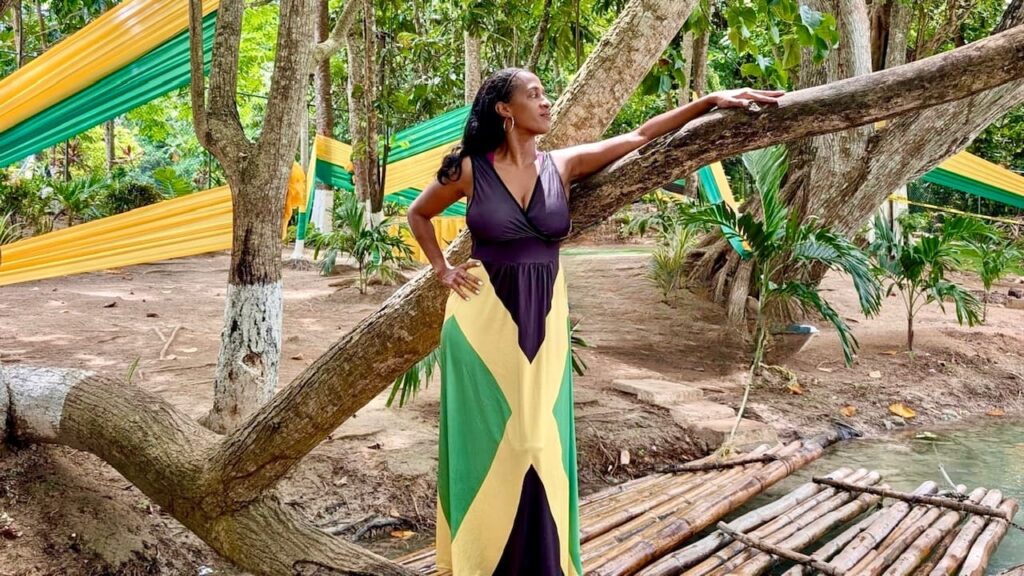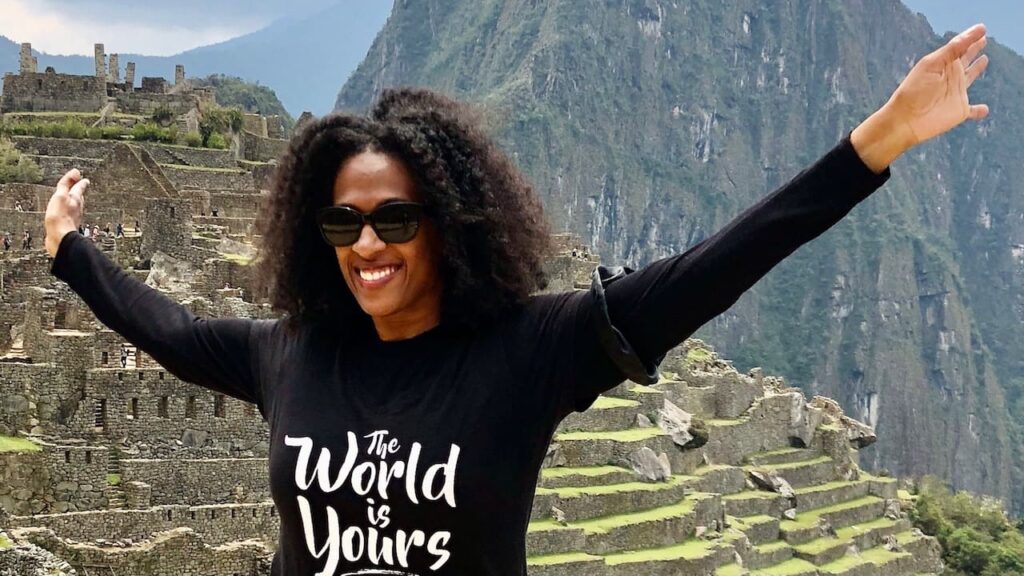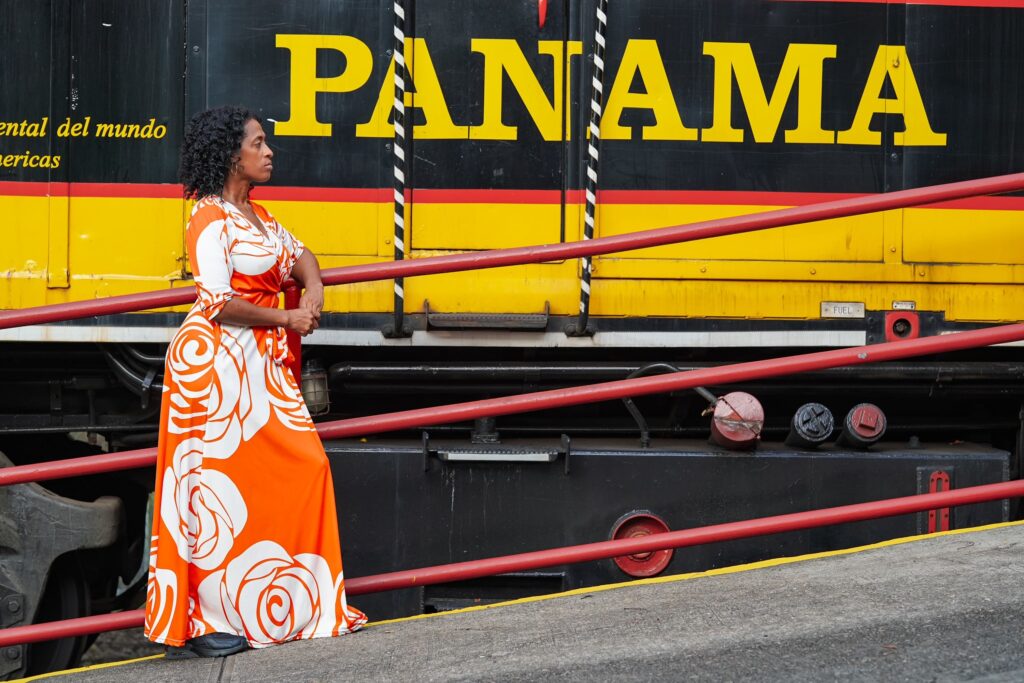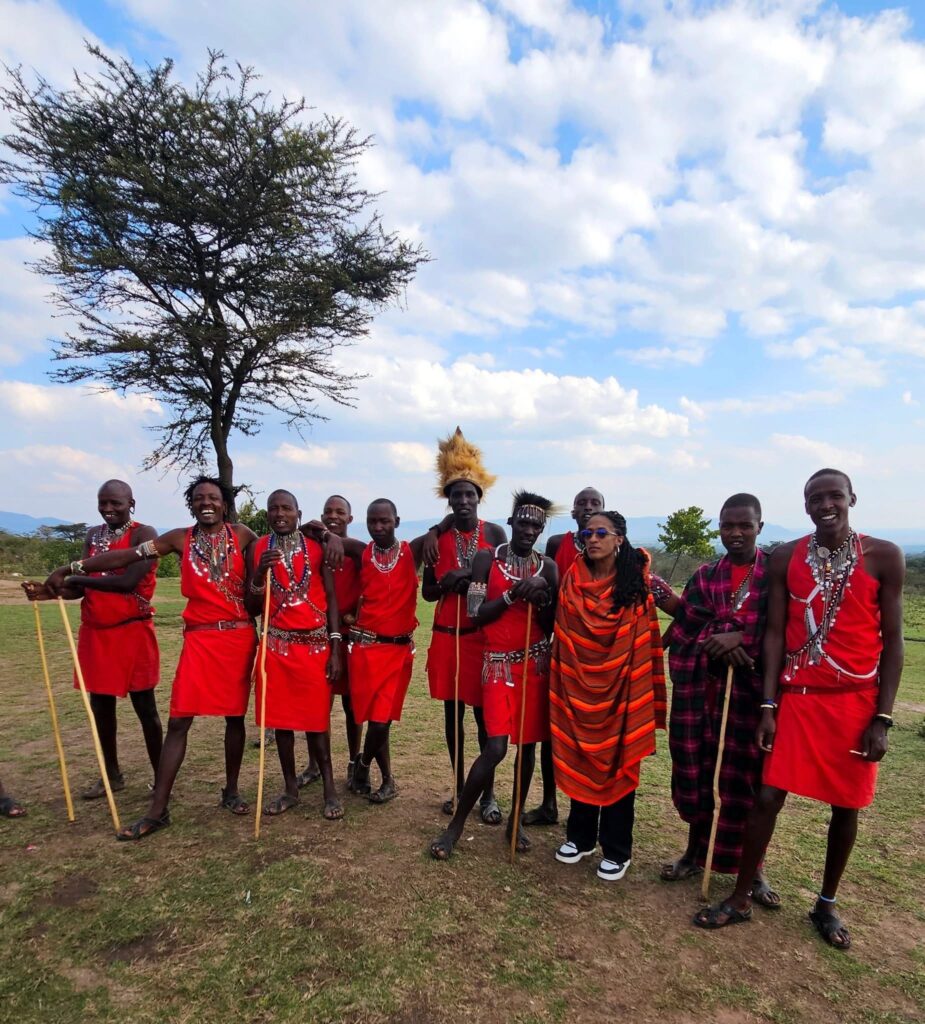
Listen to this Article
Born and raised in Manhattan, Aisha Niang grew up in a city that forces you to find your rhythm or risk being left behind. She carried her cerebral palsy into classrooms, onto buses, into friendships, never allowing it to press her into the shadows. “My parents never let it stop me,” she says, and she means it. They ushered her into ballet classes, bought her pointe shoes even though her feet could not lift that way, let her skate, ride horses, and fall into puddles like every other kid. Their message was simple and liberating: you belong everywhere.
That sense of belonging became her foundation. She went on to live in Washington DC and in Houston building a career in civil engineering managing wastewater treatment across the United States. “When you flush your toilet, you get to think of me,” she laughs, gleefully poking fun at her “glamorous” line of work. Glamorous or not, it was a career that carried real weight, especially during the COVID years when wastewater testing became crucial for tracking outbreaks. Yet in 2022, after decades of service, she walked away. At 46 she made the leap she had always wanted, packed her life, and relocated to Panama.
Her decision was not a reckless gamble. It was born of reflection, of remembering her roots. Aisha’s father was Senegalese, her grandmother Panamanian, her grandfather Jamaican. Globalism isn’t a label she puts on herself. It is literally her DNA. “The world was always in my blood,” she explains. Moving abroad was inevitable, it was never just a fantasy. Panama, her grandmother’s birthplace, with its easy visa process and the echoes of her ancestors calling her back . . . she became the first in her family to return since her grandmother left in the early 1900s.
Travel is the pulse that keeps Aisha’s life humming. She has stepped onto the soil of 27 countries, with plans to reach four new ones as she celebrates her 50th birthday. Iceland stunned her with raw landscapes that looked like Earth’s first draft. Egypt thrilled her as an engineer . . . she crawled into pyramids and touched stones that have defied centuries. Senegal moved her to tears, not for its monuments but for its people. After her father passed away, she traveled there and met relatives for the first time, a true homecoming where every household greeted her with food and kinship.

For all her adventures, Aisha is frank about accessibility. She is not swept away by glossy brochures promising effortless travel for those with mobility needs. Airports can be inconsistent, city streets uneven, and sometimes she must be lifted into a boat or a balloon basket. She accepts help when it comes, though she likes to choose how it’s done. “If I fall, people rush in to pull me up their way. That doesn’t work for me. I have to tell them, wait, let me get into position, then you help.” She chuckles when she says it, but the undertone is clear: independence and dignity matter, even in moments of assistance.
Living in Panama has been both challenging and affirming. The infrastructure is rough: sidewalks crumble, ramps tilt at precarious angles, and buildings often lack basic accommodations. Yet, she feels more human there than she sometimes did in the United States. Banks usher her to the front, government cards grant discounts on flights, electricity, even internet bills. “They make up for it,” she says. It’s not perfect, but it’s personal. She is greeted with smiles in the streets, not stares.
Her relationship with travel is not simply stamps and selfies. It is proof to herself that she is meant to move, to see, to leave footprints across borders. From a toddler to her early 20’s she assumed everyone was born with a passport. Her mother made it feel that way, whisking her to Jamaica, Morocco, Egypt and Mexico before she reached her teens. She carries the belief that the world is open, waiting and that she belongs.
When asked what she always packs, her list is both practical and revealing. Painkillers, because long days of walking can spark pain in her back. Arch supports, because even the strongest traveler needs a little cushioning. And toilet wipes, because restrooms in remote sites often lack the basics. Small items, but each speaks of her determination to keep moving no matter what.

She admits travel has not always been smooth. Amsterdam left her frustrated when wheelchair services were nowhere to be found. Sri Lanka overwhelmed her with stares. But none of this dimmed her desire. “Travel let me know I can do almost anything,” she says. That belief is why she can envision herself in Antarctica, ticking off her final continent, standing among glaciers while the cold air bites at her muscles.
Aisha is honest about her past insecurities. As a child she hated her disability, covered scars from surgeries, longed to blend in. Now those scars feel like proof, not of limitation but of strength. “They’re my badge of honor,” she says. She recognizes that without those surgeries, she might not be walking at all.
Today, she speaks with a calm acceptance that only comes from living fully. She knows she cannot control how strangers look at her, but she can control her response. Sometimes she smiles back, sometimes she mirrors their expression, always reminding them she is a person first.
And that is the essence of Aisha Niang. A woman who refuses confinement, who built a career in the unglamorous trenches of wastewater, who uprooted her life to claim a future in Panama, who continues to wander the world with humor and honesty. She proves that life expands when you dare to step forward, even if your steps look different from everyone else’s.
If you are considering making Panama your home and want insight from someone who has done it, reach out to Aisha for advice. She offers one-hour consultations about moving to Panama and travelling around the world with a disability.
Follow Aisha
Aisha has just returned from a five country, 13 flight-trip. She shares some insights:
Egypt
- buses shuttled people around the pyramid complex which had wheelchair access.
- Boats and cruises were not wheelchair friendly. My Nile River cruise did not have an elevator and my room was on the second floor. The dining area was below deck.
- The new Cairo grand museum had chair lifts and an “escalator” for wheelchairs.
Tanzania (Zanzibar)
- If you’re a wheelchair user, it isn’t mobility friendly.
- I would advise that you ask resorts ahead of time what their access is like or if they have accessible rooms.
- I will also ask the tour guide if they have mobility-friendly transportation or ladders to get in and out of vans.
Kenya
- The safari lodge was not accessible.
- The safari truck was not either. The driver had a ladder for you to use to step in and out of the truck. Ask ahead of time if they have vehicles that are accessible.
Jordan
- Petra: A golf cart takes you from the entrance and the Treasury and back for an extra fee.
- Jesus’ baptism site: A golf cart is used to drive you from the starting point through the various sites for an extra fee. You have to get on a small bus to take you to the golf cadet. The bus is not accessible for those who cannot climb a few stairs to enter. Some of the sites such getting to the Jordan River has stairs.
United Arab Emirates
Ask your guides ahead of time how much walking is involved. The tour I took to Abu Dhabi was taxing. It involved getting in and out of a tourist bus several times to see each location and some of the locations required a lot of walking like visiting the Sheikh Zayed Grand Mosque. They did have moving walkways to get you to the Mosque and I saw golf carts there as well.
Every airport and airline seemed to handle wheelchair assistance differently. Sometimes, the request was forgotten upon landing; other times, someone was already waiting.
Aisha further shared, “In Ethiopia where we connected a few times, some believed they were doing the right thing by taking us to what they called a “VIP area” for wheelchair users. While the intention may have been good, I was never asked if I wanted to go there. My friends and I already had lounge access, but instead we were seated in this section with hard chairs, no food or drink, and little communication since we weren’t even near our gate.” She continued, “What eventually happened was that we were loaded into a catering truck and driven to the plane, boarding from the opposite side of where other passengers entered. I could understand the reasoning behind it, but I didn’t appreciate not being given a choice in the matter.”

Aisha Niang’s travel tips, drawn from her experiences around the globe:
Smart Packing
- Painkillers first: She always carries Aleve for back pain after long walks.
- Arch support inserts: Extra ones in case the first pair wears down.
- Toilet wipes: Especially useful in regions where bathrooms don’t provide paper.
Navigating Airports
- Always request wheelchair service: Even if you walk with a cane or on your own, using the service speeds you through immigration, baggage claim, and security. Airports often provide priority lanes.
- Don’t push yourself to walk gate to gate: Save energy for the actual trip.
Accessibility Hacks
- Low expectations, flexible mindset: She doesn’t assume accessibility will be available, especially outside the US. Instead, she adapts in the moment.
- Ask directly when needed: If standing in long lines becomes unbearable, request access to shorter lanes (like the diplomat line she used in Amsterdam).
- Adjust entry techniques: Sometimes she uses a step stool, kneels and pulls herself up, or accepts help when climbing into vans or boats.
Handling Assistance
- Accept help gracefully: People may assist without asking, like carrying her out of a hot-air balloon or lifting her into a raft. She no longer resists if it’s respectful.
- Guide the help: When others try to assist the wrong way, she pauses and explains how she needs it done.
Attitude While Traveling
- Travel with curiosity, not fear: She doesn’t tell tour operators ahead of time about her condition. She shows up and figures it out.
- Expect stares in some places: In countries like Sri Lanka, she found people surprised to see her out enjoying herself. She manages it with eye contact, humor, or a smile.
- Focus on the experience, not limitations: She won’t let her condition dictate where she goes or what she tries.
Transportation Abroad
- Tour guides help most: Many provide step stools or assist with vehicles when needed.
- Public transport varies: Tight, crowded vans in places like the Bahamas aren’t always friendly to mobility issues. Flexibility is key.
